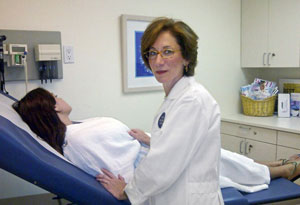What's It Really Like to Live Through Breast Cancer?

Photo: Edvard March/Corbis
Each Year Thousands of American women learn they have breast cancer, but as they navigate months of IV drips and follow-up scans, nausea and fatigue, fear and hope, no two share the same experience. We followed three patients through chemo, surgery, remission—and recurrence— to see just how personal this disease can be.
"What I always tell people," says Ruth Oratz, MD, "is that breast cancer
is not one disease." Oratz—54, petite and polished, with a green-eyed gaze that pins you
to your chair—is sitting at her gleaming Art Deco desk at the Women's Oncology &
Wellness Practice in Manhattan, which she operates in addition to teaching
medicine at NYU. "So when I treat someone," she continues, "I consider
the context." She asks patients about their jobs, parents, kids, the state of their marriage. The
answers help shape Oratz's plan of attack—from her choice of chemo
drug to a treatment schedule that leaves time for work, family, life.One in eight American women will be diagnosed with breast cancer in her lifetime. About 200,000 are diagnosed in the U.S. each year; 40,000 of them will not survive. As Oratz points out, it's a diagnosis that's complicated by dozens of factors. Yet for all our awareness of pink ribbons and charity walks, until breast cancer is experienced firsthand, the particulars of its progress and the intricacies of its grueling treatment remain largely unknown. Which is why O asked three of Oratz's patients to share their stories: in the hope of demystifying a disease that's as familiar as our own bodies and as mysterious as the reasons they sometimes betray us.



